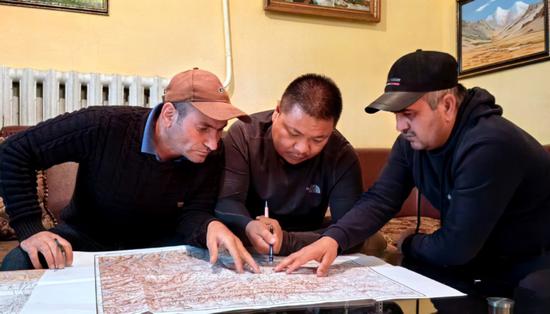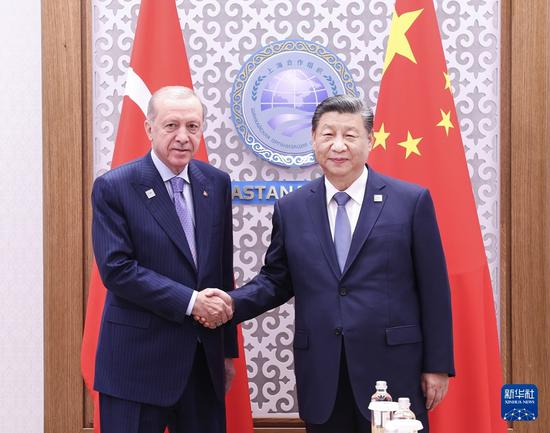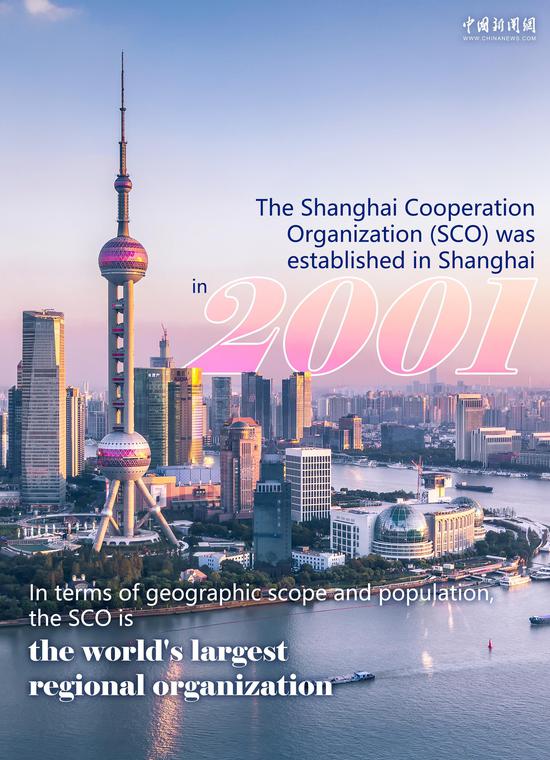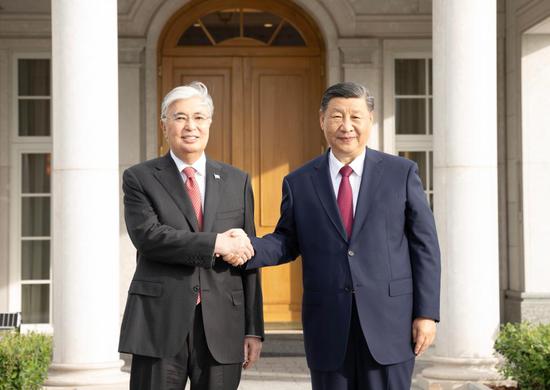
Chinese and Tajik experts discuss wildlife survey routes on the Pamir Plateau in Khorog, Tajikistan, in July last year. (CHINA DAILY)
The survival of wild animals knows no borders, and the research and protection of transnational species have always been key concerns for international scientists.
Organized by Chinese scientists, scientists from Central Asian countries such as Tajikistan have embarked on a two-year joint research effort, venturing into the wilderness together to search for the transboundary Marco Polo sheep in the Pamir Plateau.
"Through joint surveys, we have found that the core habitat of the Marco Polo sheep in the Pamirs is already fragmented," said Yang Weikang, a researcher at the Sino-Tajikistan Joint Laboratory for Conservation and Utilization of Biological Resources.
"We need to establish ecological corridors to link these habitats together, ensuring their genetic exchange, in order to protect this species, because if genetic exchange is impeded, this species will decline."
Yang, deputy director of the Conservation and Research Center for Biodiversity of Arid Land at the Xinjiang Institute of Ecology and Geography, Chinese Academy of Sciences, and his team brought validated population research methods for wild animals from China to Tajikistan. Through methods such as geotagging, based on a decade of observational data, they have determined the global survival status, distribution and migration routes of the endangered species.
"The Marco Polo sheep will move according to seasonal changes in search of water and grass, and will migrate to certain locations for birthing, mainly traversing between China, Tajikistan, Afghanistan and Pakistan," said Yang.
The Sino-Tajikistan laboratory is a platform for biodiversity research and talent development jointly established by the Xinjiang Institute of Ecology and Geography, Chinese Academy of Sciences and relative research institutions in Tajikistan.
The laboratory also collaborates with research institutions in Central Asian countries such as Kyrgyzstan, Uzbekistan and Kazakhstan, conducting surveys of wild animals and plants as one of its important tasks.
"In the past, scientists studying the Marco Polo sheep from various countries did not communicate. However, transboundary species require cooperation from various countries for effective protection," Yang said.
The Sino-Tajikistan laboratory, since its establishment in March 2022, has organized scientists to communicate and conduct field research together, jointly apply for international cooperation projects, organize international conferences, and collaborate in training master's and doctoral students.
"Understanding which national borders they cross during migration, when they cross, the population distribution, habitat fragmentation, and the survival crises they face all require international exchange and cooperation," Yang said.
The Marco Polo sheep is an endemic species of the Pamir Plateau, also known as Pamir argali sheep, and is listed as near threatened on the IUCN Red List. Currently, there are only around 30,000 Marco Polo sheep, with over 20,000 in Tajikistan, and several thousands in countries such as China and Kyrgyzstan.
In May, the laboratory submitted a consulting report to the Tajikistan government, hoping that Central Asian countries could work together to protect the Marco Polo sheep, especially by renovating border fences to facilitate the migration and genetic exchange of populations.


















































 京公网安备 11010202009201号
京公网安备 11010202009201号